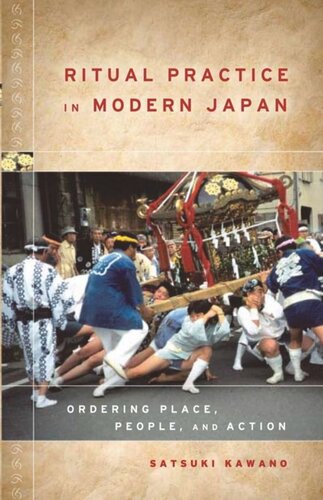

Most ebook files are in PDF format, so you can easily read them using various software such as Foxit Reader or directly on the Google Chrome browser.
Some ebook files are released by publishers in other formats such as .awz, .mobi, .epub, .fb2, etc. You may need to install specific software to read these formats on mobile/PC, such as Calibre.
Please read the tutorial at this link: https://ebookbell.com/faq
We offer FREE conversion to the popular formats you request; however, this may take some time. Therefore, right after payment, please email us, and we will try to provide the service as quickly as possible.
For some exceptional file formats or broken links (if any), please refrain from opening any disputes. Instead, email us first, and we will try to assist within a maximum of 6 hours.
EbookBell Team

5.0
48 reviewsNational surveys indicate that most Japanese, while professing no religious commitment, frequently perform rituals: They regularly tend their family home altars, look after family graves, participate in neighborhood festivals, and visit Shinto shrines and Buddhist temples. Are these rituals mere formalities?
Based on fourteen months of fieldwork in Kamakura city near Tokyo, Satsuki Kawano examines the power of ritual and its relevance for modern urbanites. She reveals the indebtedness of ritual to forms that create an elevated context and infuse the mundane with a sense of moral order. By employing acts and environments common to everyday life, Kawano argues, ritual evokes morally positive values such as purity, gratitude, respect, and indebtedness. Rather than objectify morality in a sacred text or religious doctrine, ritual embodies and emplaces a sense of what it means to be a good person and creates moments of personal significance and engagement. In Kamakura, belief is therefore a consequence and not a prerequisite of ritual engagement.
Ritual Practice in Modern Japan effectively challenges the widespread assumption that ritual in non-Western societies has little moral significance and that, with modernization, "traditional" practices inevitably disappear. This is a book that will interest scholars and students of cultural anthropology, ritual studies, and Japanese studies.